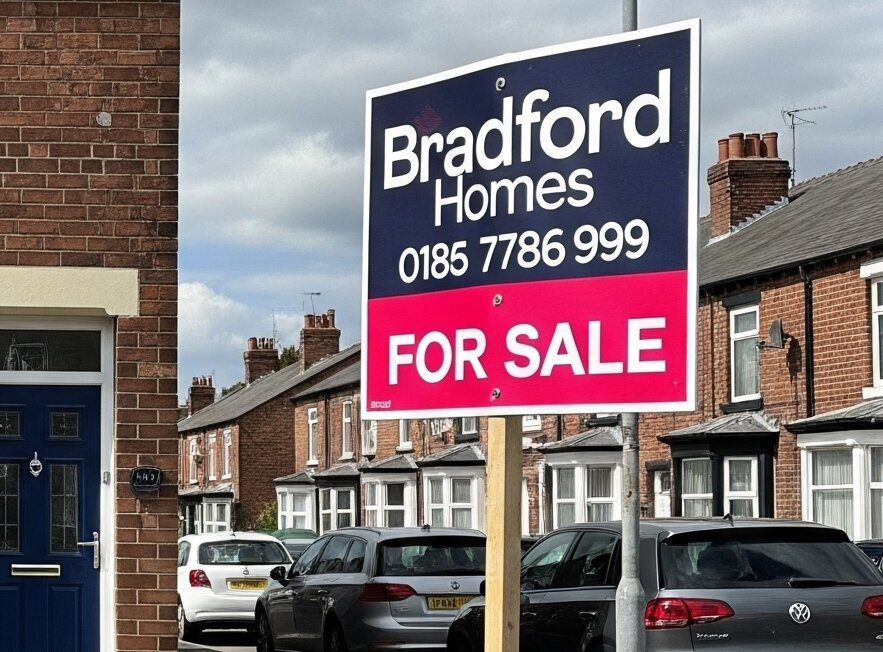Rightmove has urged ministers to tread carefully over proposals to overhaul property taxation, warning that ill-judged reforms could distort the housing market, penalise existing owners and risk deterring both first-time buyers and downsizers.
The UK’s largest property portal said almost a third of homes for sale in England — and nearly six in ten in London — would be hit by an annual property levy if the government pressed ahead with plans to replace stamp duty with a new charge on homes worth more than £500,000. By contrast, just 8 per cent of homes in the North East would be affected.
Johan Svanstrom (main picture, inset), Rightmove’s Chief Executive, says: “We would like any changes to current property taxes to put affordability and mobility first. It’s already hard for first-time buyers to save up their deposit to get onto the ladder, and many must fund a large stamp duty payment too. According to our data, around a third of all sales currently going through the legal system are for typical first-time buyer properties, so it’s a big part of the market which supports the wider ecosystem.”
And he adds: “Affordability is very stretched and so putting the tax burden onto the seller could be beneficial for first-time buyers, however the saving could be wiped out if sellers simply build some of the charge into a higher asking price.”
WINNERS AND LOSERS
Rightmove said shifting tax onto sellers could create “two-system” distortions, with recent buyers who had already paid stamp duty facing a further charge when they sold.
Svanstrom warns: “If the responsibility for property taxes shifts onto the sellers’ side, the government will need to really think through how this transition will be phased in to avoid slowing down the mass market.
“Those who have recently paid stamp duty as a buyer and would face paying property tax as a seller in the future would clearly be at a disadvantage.
“As we’ve seen around moments such as stamp duty changes, we could see some distortion in the market for properties at or close to the £500,000 mark if this does end up being the threshold, with movers at this price range understandably keen to avoid the new tax if they can.”
MANSION TAX
At the top end, just over 1% of agreed sales this year have been for homes above £1.5 million, the level at which a potential “mansion tax” could apply. In London, the figure rises to 5 per cent.
“We need to make it easier and more attractive.”
Svanstrom says: “We need to make it easier and more attractive for those at the top of the market to consider downsizing if they are in a position to do so.
“There is no real incentive for someone in a large home to downsize to a smaller one unless they truly need to and can still afford the stamp duty bill.
“The current rumours to stamp duty changes would only seem to exacerbate this, as it may deter some at the top of the market from moving if they would then face a new annual tax.”
CAUTION NEEDED
He adds: “As our real time data shows, a proposed mansion tax would only affect a small proportion of the market. However, the government needs to be cautious over the cumulative effect of taxation on higher priced areas of the country as it simply risks stalling this part of the market, since the importance of mobility for people and the overall economy is strong in those areas too.
“A slower market can affect all types of movers, from first-time buyers to key workers and families, even if a tax is aimed at higher value properties.”
With rents up 44% since the pandemic and supply 26% lower, the company said any measures that ease the transition from renting to owning would be welcome.
“It could make the transition from renter to first-time buyer a little easier.”
Svanstrom says: “If under the rumoured proposals, buyers no longer pay added property taxes, it could make the transition from renter to first-time buyer a little easier.
“The rumoured stamp duty changes don’t appear to apply to buy-to-let properties, so we wouldn’t expect any immediate impact on landlord supply, although they face many other tax pressures adding to the concerns of adequate supply going forward in the market.”
UNINTENDED CONSEQUENCES
The average asking price for a home in Great Britain is now £368,740, rising to £666,983 in London and £479,634 in the South East. In the North East the average is £194,799.
And Svanstrom says ministers must weigh the risks of suppressing transactions against the potential revenue gains.
“The key question is whether these changes would actually generate more income.”
“It’s encouraging that changes to stamp duty are being considered as there are many ways the current system can be improved or made fairer.
“Under this week’s rumoured proposals, there would appear to be some benefits to first-time buyers, but more consideration needed for the mass-market caught between two systems, and downsizers.
“The key question is whether these changes would actually generate more income for the government. It depends on the designs of reforms for taxes and fees, as well as the rates, but if they reduce mobility through these changes, they risk having the opposite effect and losing out in the long run.”











